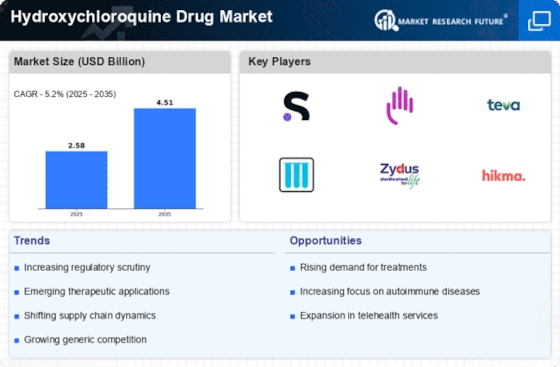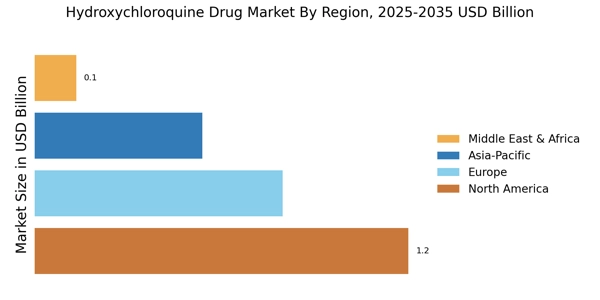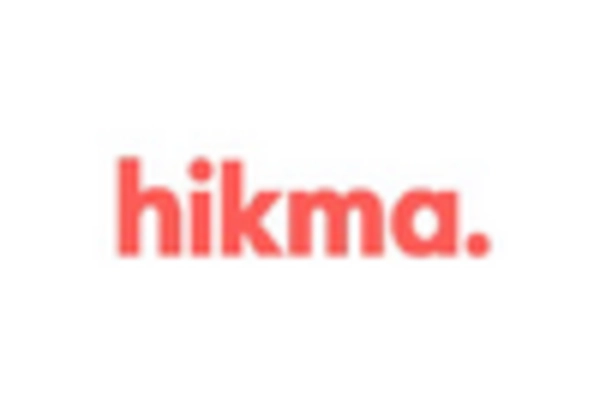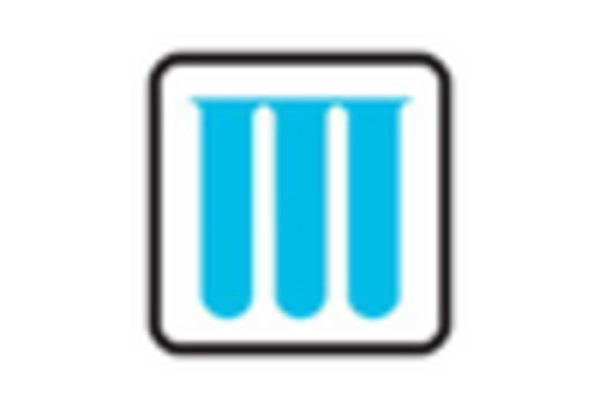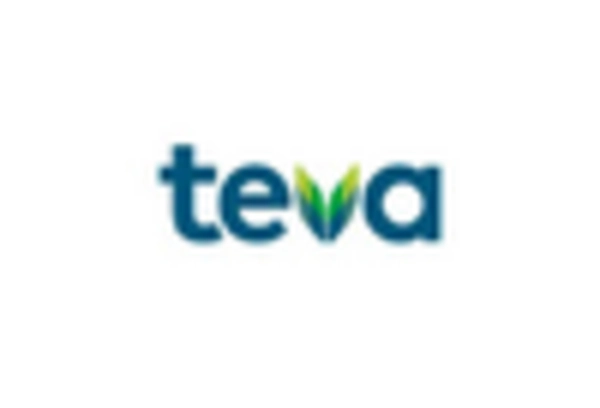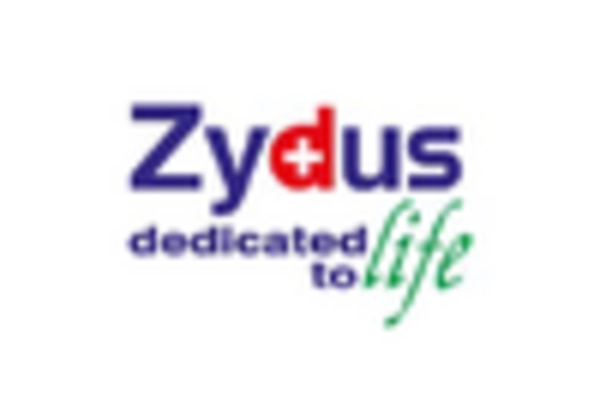Regulatory Support and Approval Processes
Regulatory support plays a crucial role in shaping the Hydroxychloroquine Drug Market. Favorable regulatory frameworks and streamlined approval processes for new indications of Hydroxychloroquine can significantly enhance market dynamics. Regulatory agencies are increasingly recognizing the importance of expediting the review of drugs that demonstrate potential benefits in treating various diseases. This trend is likely to facilitate quicker access to Hydroxychloroquine for patients, thereby increasing its market penetration. As regulatory bodies continue to support the development and approval of Hydroxychloroquine for diverse applications, the market is poised for substantial growth.
Increasing Prevalence of Autoimmune Diseases
The rising incidence of autoimmune diseases, such as rheumatoid arthritis and lupus, is a pivotal driver for the Hydroxychloroquine Drug Market. As these conditions become more prevalent, the demand for effective treatment options escalates. Hydroxychloroquine has been widely recognized for its efficacy in managing these diseases, leading to a notable increase in prescriptions. According to recent data, the prevalence of autoimmune disorders has surged, with estimates suggesting that approximately 5% of the population may be affected. This growing patient base is likely to bolster the Hydroxychloroquine Drug Market, as healthcare providers seek reliable therapies to address these chronic conditions.
Rising Investment in Pharmaceutical Research
The Hydroxychloroquine Drug Market is experiencing a surge in investment directed towards pharmaceutical research and development. Increased funding from both public and private sectors aims to explore new therapeutic uses and improve existing formulations of Hydroxychloroquine. This trend is evidenced by a significant rise in clinical trials focusing on the drug's efficacy in various conditions. As of 2025, the number of ongoing clinical trials has reportedly increased by over 30%, indicating a robust interest in the drug's potential. Such investments are likely to foster innovation and expand the market's scope, ultimately benefiting patients and healthcare providers alike.
Expanding Applications in Infectious Diseases
Hydroxychloroquine's potential applications in treating various infectious diseases, including malaria and certain viral infections, contribute significantly to the Hydroxychloroquine Drug Market. The drug has been utilized for decades in malaria prophylaxis and treatment, maintaining a steady demand in endemic regions. Recent studies have indicated that Hydroxychloroquine may also have antiviral properties, which could lead to expanded usage in treating emerging infectious diseases. This diversification of applications is expected to enhance market growth, as healthcare systems increasingly recognize the drug's versatility in combating infectious threats.
Growing Awareness and Education Among Healthcare Providers
The Hydroxychloroquine Drug Market is positively influenced by the increasing awareness and education among healthcare providers regarding the drug's benefits and applications. Enhanced training programs and resources are being developed to ensure that medical professionals are well-informed about the therapeutic potential of Hydroxychloroquine. This heightened awareness is likely to lead to more informed prescribing practices, thereby increasing the drug's utilization in clinical settings. As healthcare providers become more knowledgeable about the drug's efficacy in treating various conditions, the demand for Hydroxychloroquine is expected to rise, further propelling market growth.


